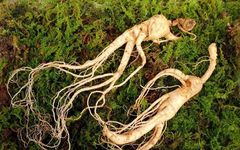Qi-boosting herbs are easily understood as those that tonify the vital energy (Qi) and are used to treat Qi deficiency. These herbs are commonly used in medicinal cuisine, such as the well-known Ren Shen (Ginseng), Dang Shen (Codonopsis), Xi Yang Shen (American Ginseng), Tai Zi Shen (Pseudostellaria), Huang Qi (Astragalus), and Shan Yao (Chinese Yam), which are widely found in the delicious soups favored by the people of Guangdong. However, the question arises: while the soup is tasty, the herbs may not necessarily be suitable for everyone. Let’s explore how to apply Qi-boosting Chinese herbs and who should use them.
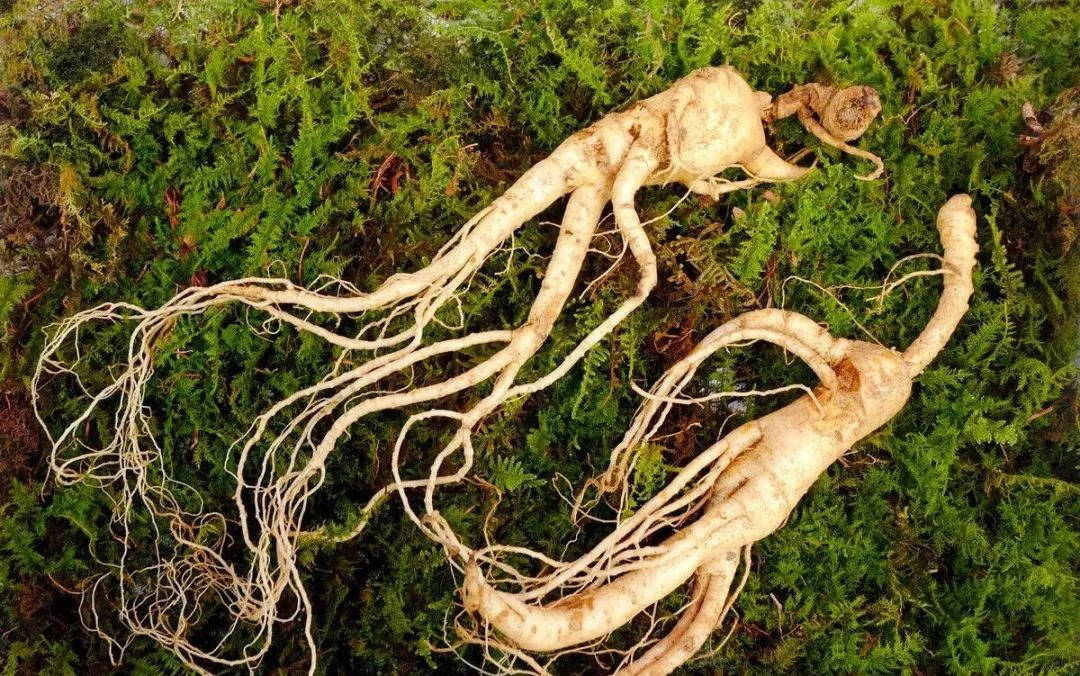
Ren Shen (Ginseng) — Greatly tonifies the original Qi, strengthens the spleen and lung, generates fluids, quenches thirst, calms the spirit, and enhances intelligence.
Ren Shen has a sweet and slightly bitter flavor, with a slightly warm nature, and it enters the spleen, lung, and heart meridians. This herb is a key medicine for tonifying Qi and strengthening the body, effectively replenishing original Qi and treating Qi deficiency leading to collapse. It also strengthens the Qi of the spleen and lung, addressing symptoms of spleen and lung Qi deficiency. Additionally, it can tonify Qi, generate fluids, calm the spirit, and enhance intelligence, treating symptoms such as fluid damage leading to thirst, diabetes, restlessness, palpitations, and forgetfulness.
Conditions diagnosed by Western medicine as shock-related Qi deficiency, organ prolapse such as gastric and uterine prolapse, chronic gastroenteritis due to spleen Qi deficiency, middle Qi sinking, diabetes due to Qi and Yin deficiency, bronchitis due to lung Qi deficiency, malnutrition, anemia, and neurasthenia due to Qi and blood deficiency are all applicable.
Ren Shen is categorized based on cultivation methods into wild ginseng (Shan Shen) and cultivated ginseng (Yuan Shen). Wild ginseng has the best efficacy and is often used to rescue from collapse. Cultivated ginseng is further classified based on processing methods into Sheng Shai Shen (fresh ginseng that is cut, briefly blanched in boiling water, and then dried, or directly dried; the roots are processed into white ginseng roots), Hong Shen (steamed for 2-3 hours and then dried), and Tang Shen (also known as white ginseng, refers to fresh ginseng that is blanched in boiling water, then bound and soaked in concentrated sugar syrup before drying). Wild varieties are often processed into Sheng Shai Shen or Tang Shen.
Sheng Shai Shen has a milder medicinal property, suitable for those with Qi and Yin deficiency; Hong Shen has a warmer property, often used for those with both Qi and Yang deficiency.
It is important to note that to ensure the Qi-boosting efficacy of Ren Shen, it should not be taken with tea, white radish, or in combination with Qing Lu (Rhizoma Rhei), and it is contraindicated with Wu Ling Zhi (Flying Squirrel Feces), Soapberry, and Radish Seeds. As it is a tonic, it should not be used when the evil is strong and the vital Qi is not deficient.
Clinical Applications of Ren Shen
Rescue from Critical Conditions: It can be used alone effectively, such as in Du Shen Tang, suitable for cases of extreme Qi deficiency leading to collapse due to excessive sweating, diarrhea, blood loss, or prolonged illness, presenting with shortness of breath, fatigue, and a faint pulse. When combined with Fu Zi (Aconite), as in Shen Fu Tang, it is suitable for cases of severe Qi collapse or sudden blood loss leading to Yang Qi collapse, presenting with profuse sweating, shortness of breath, cold limbs, and a faint pulse. When combined with Mai Dong (Ophiopogon) and Wu Wei Zi (Schisandra), as in Sheng Mai Yin or Sheng Mai San, it is suitable for Qi deficiency leading to collapse with symptoms of sweating, warm body, and dry red tongue, as it can tonify Qi, nourish Yin, generate fluids, and stabilize sweating.
Tonifying Lung Qi: When combined with Wu Wei Zi, Su Zi (Perilla Seed), and Xing Ren (Apricot Kernel), as in Bu Fei Tang, it is suitable for cough and wheezing due to lung Qi deficiency with phlegm.
Tonifying Spleen Qi: When combined with Bai Zhu (Atractylodes) and Fu Ling (Poria), as in Si Jun Zi Tang, it is suitable for spleen deficiency with damp stagnation; when combined with Huang Qi and Bai Zhu, it is suitable for weak spleen Qi that cannot control blood, leading to chronic blood loss; when combined with Dang Gui (Angelica) and Shu Di Huang (Rehmannia), as in Ba Zhen Tang, it is suitable for spleen Qi deficiency leading to both Qi and blood deficiency.
Tonifying Heart Qi: When combined with Suan Zao Ren (Sour Jujube Seed) and Bo Zi Ren (Arborvitae Seed), as in Tian Wang Bu Xin Dan, it is suitable for symptoms of palpitations, anxiety, chest tightness, shortness of breath, and weak pulse due to heart Qi deficiency, and it can also calm the spirit and enhance intelligence, treating insomnia, vivid dreams, and forgetfulness.
Tonifying Kidney Qi: When combined with Ge Jie (Gecko), Wu Wei Zi, and Hu Tao Ren (Walnut), it is suitable for shortness of breath and wheezing due to kidney not receiving Qi; when combined with Lu Rong (Deer Antler Velvet) and other tonics for kidney Yang and essence, it is suitable for kidney Yang deficiency and essence deficiency leading to impotence.
For heat disease with Qi deficiency and fluid damage leading to thirst and diabetes: when combined with Zhi Mu (Anemarrhena) and Shi Gao (Gypsum), as in Bai Hu Jia Ren Shen Tang, it is suitable for heat disease with both Qi and fluid damage, presenting with thirst and a large, weak pulse.
Huang Qi (Astragalus) — Tonifies Qi, raises Yang, benefits the Wei Qi, secures the exterior, promotes tissue regeneration, and reduces swelling.
Huang Qi has a sweet flavor and a slightly warm nature; it enters the spleen and lung meridians. This herb is effective in tonifying middle Qi and raising clear Yang, as well as tonifying lung Qi and securing the exterior, treating symptoms of spleen and lung Qi deficiency, middle Qi sinking, inability to contain blood, spontaneous sweating, and night sweats. It also promotes healing of sores, reduces swelling, and treats non-healing sores or chronic ulcers due to Qi and blood deficiency, as well as Qi deficiency leading to edema and urinary difficulties. Additionally, by tonifying Qi, it can also generate blood, contain blood, generate fluids, and alleviate stagnation, treating blood deficiency leading to sallow complexion, inability to contain blood leading to bleeding, and conditions of Qi and fluid damage leading to thirst, bi syndrome, and post-stroke Qi deficiency and blood stagnation leading to numbness and hemiplegia.
It should be noted that this herb is sweet and slightly warm, promoting sweating, and can easily assist fire and contain evil, so it is not suitable for use in cases of strong exterior evil, initial stages of sores, or when heat toxins are still present, as well as in cases of Qi stagnation, damp obstruction, or Yin deficiency with Yang excess.
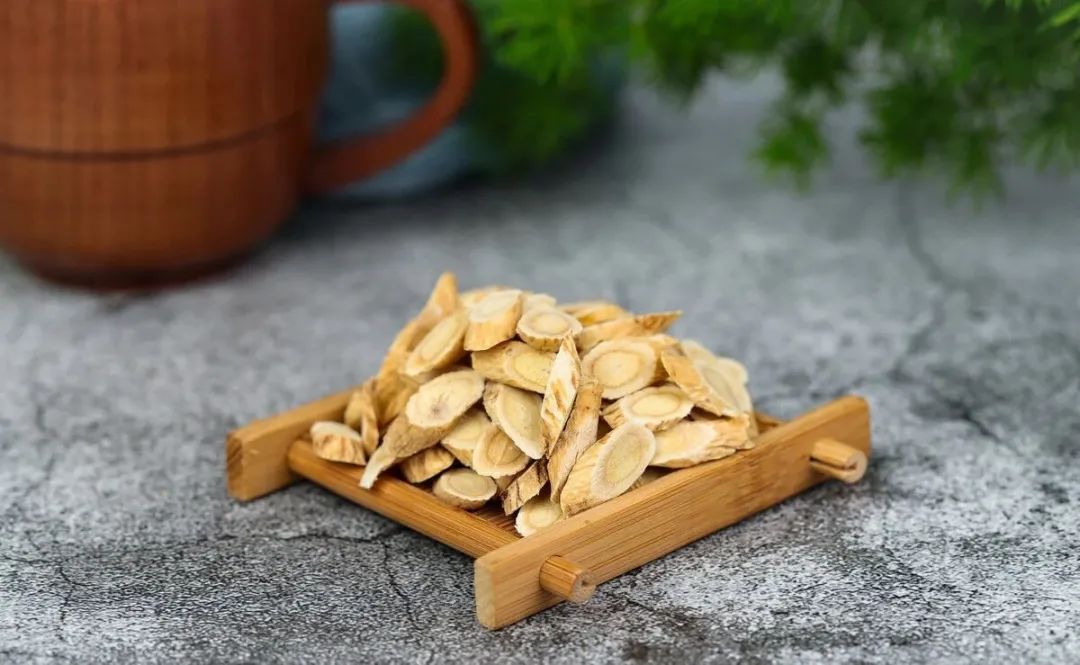
Clinical Applications of Huang Qi
Raw Huang Qi and honey-fried Huang Qi: Raw Huang Qi excels in securing the exterior and stopping sweating, promoting diuresis and reducing swelling, so it is suitable for spontaneous sweating, body weakness with cold, edema, and non-healing sores or chronic ulcers. Honey-fried Huang Qi is better for tonifying Qi and benefiting the middle, so it is suitable for Qi deficiency, fatigue, and poor appetite with loose stools.
Huang Qi combined with Ren Shen: They complement each other, forming an important partnership for tonifying Qi, suitable for symptoms of fatigue, poor appetite, and spontaneous sweating due to Qi deficiency.
Huang Qi combined with Fu Zi: Enhances the warming and Yang-boosting effects, suitable for symptoms of sweating, aversion to wind, urinary difficulties, and heaviness in the limbs due to Qi deficiency and Yang deficiency.
Huang Qi combined with Sheng Ma (Cimicifuga): Enhances the lifting and raising effects, suitable for cases of Qi deficiency leading to bleeding, prolapse, and uterine prolapse.
Huang Qi combined with Gui Zhi (Cinnamon Twig): Enhances the Qi-boosting and blood-moving effects, suitable for conditions of insufficient Qi and blood, muscle pain, and numbness in the shoulders and arms.
Huang Qi combined with Dang Gui: Enhances the effects of tonifying Qi and generating blood, suitable for fatigue due to internal injury, thirst, weak pulse, and symptoms of sores, blood deficiency with fever, and Qi and blood deficiency.
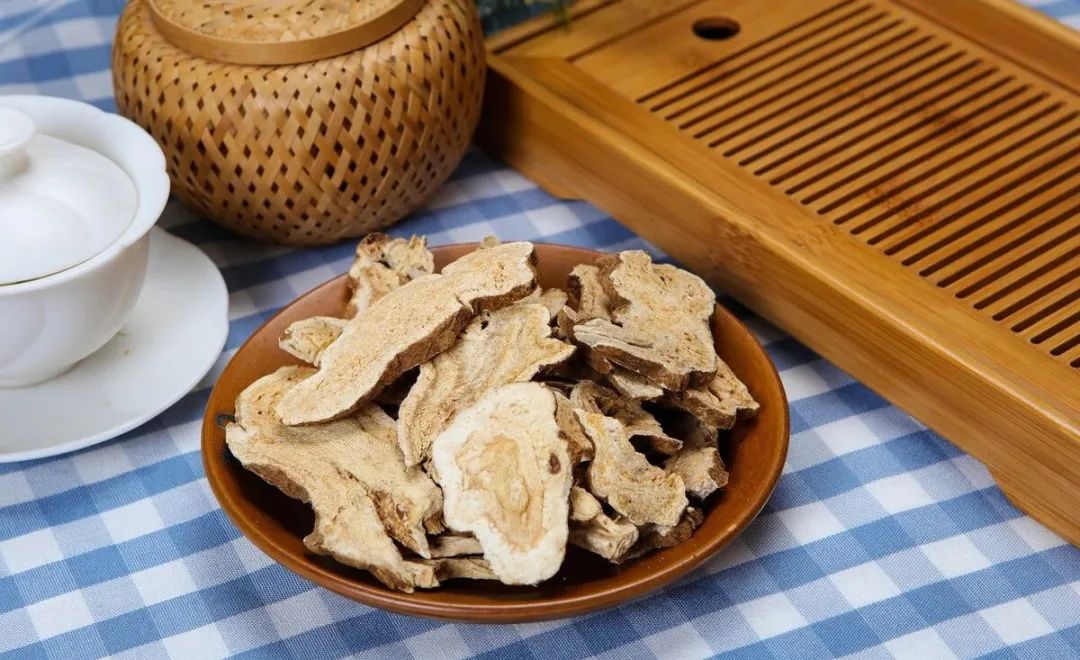
Shan Yao (Chinese Yam) — Benefits Qi and nourishes Yin, tonifies the spleen, lung, and kidney, secures essence, and stops leukorrhea.
Shan Yao has a sweet flavor and a neutral nature; it enters the spleen, lung, and kidney meridians. This herb is excellent for tonifying Qi and Yin, making it a great choice for treating Qi deficiency or both Qi and Yin deficiency. It also nourishes Yin, benefits Qi, and generates fluids, making it commonly used for kidney Yin deficiency and diabetes, and it can secure essence and stop leukorrhea, making it a key herb for kidney deficiency.
It should be noted that this herb nourishes Yin and secures, assisting dampness, so it is contraindicated in cases of excessive dampness or with strong evil and accumulation.
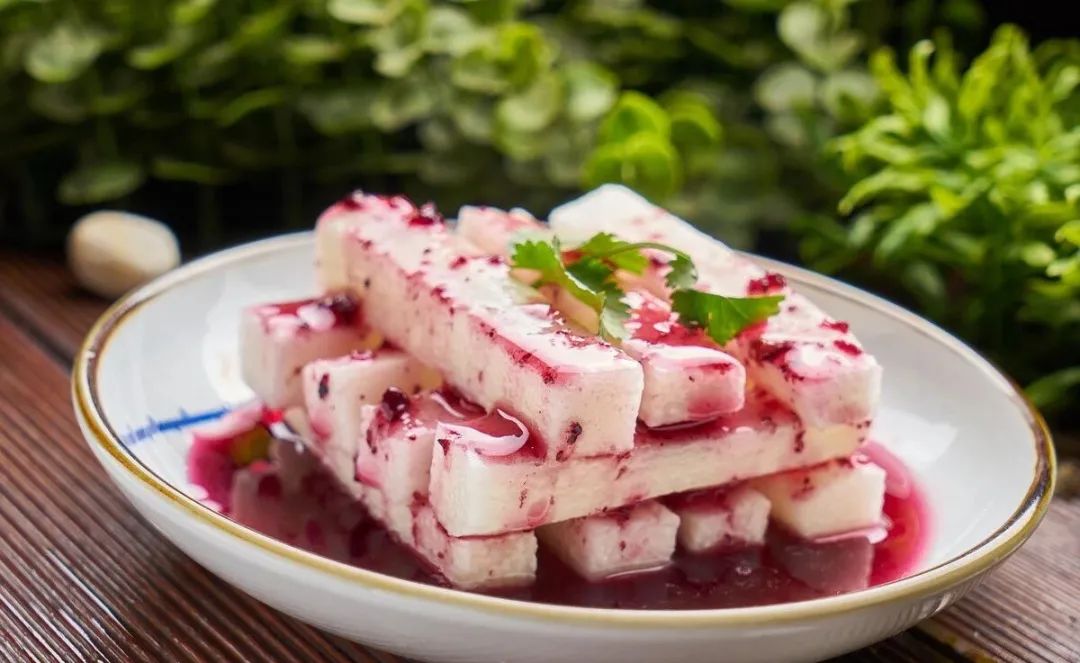
Clinical Applications of Shan Yao
Shan Yao combined with Bai Zhu and Ren Shen, as in Shan Yu Wan, can treat spleen and stomach weakness with poor appetite; Shan Yao combined with Suo Yang (Cynomorium) is suitable for kidney Yang deficiency, securing essence and treating nocturnal emissions; Shan Yao combined with Qian Shi (Euryale Seed) enhances the effects of tonifying spleen and kidney, stopping diarrhea and securing essence, suitable for spleen and kidney deficiency leading to diarrhea, nocturnal emissions, leukorrhea, and urinary incontinence; Shan Yao combined with Tian Hua Fen (Trichosanthes Root) enhances the effects of tonifying Qi, nourishing Yin, and generating fluids, suitable for heat disease damaging fluids, restlessness, and diabetes; Shan Yao combined with Zhi Mu enhances the effects of nourishing Yin and reducing fire, suitable for Yin deficiency with excess heat leading to bone steaming, night sweats, and restlessness; Shan Yao combined with Chuan Bei Mu (Fritillaria) is suitable for chronic cough due to lung deficiency.
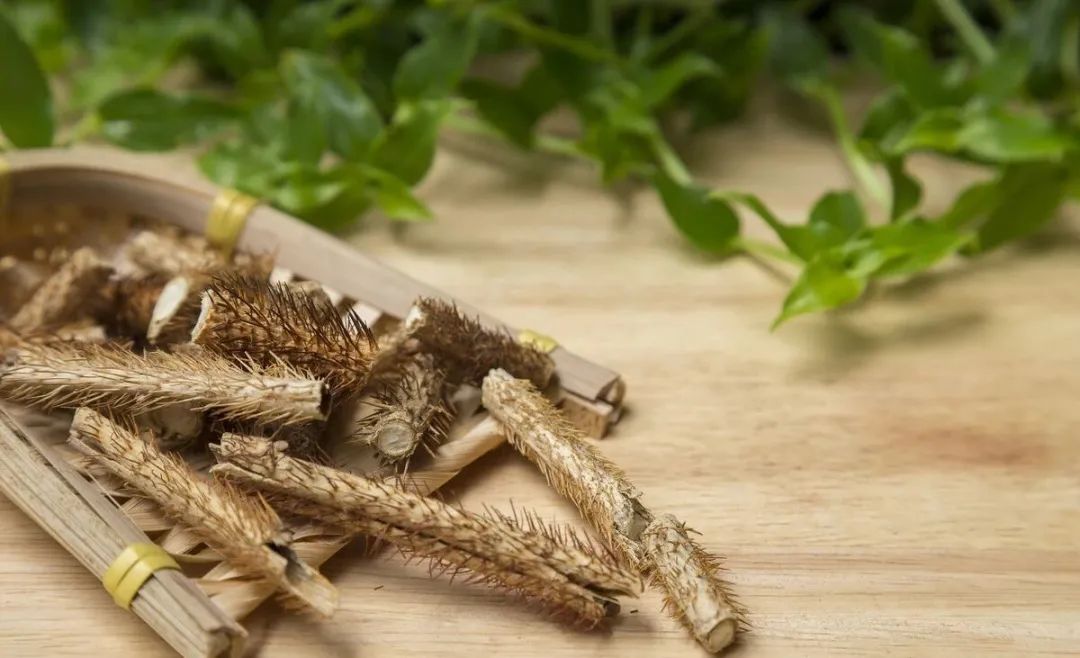
Ci Wu Jia (Siberian Ginseng) — Tonifies Qi, strengthens the spleen, benefits the kidney, strengthens the waist, nourishes the heart, calms the spirit, and invigorates blood circulation.
Ci Wu Jia has a sweet flavor and a slightly bitter nature; it enters the spleen, kidney, and heart meridians. This herb is effective in tonifying Qi and strengthening the spleen, treating spleen Qi deficiency leading to fatigue and edema; it also benefits the kidney, treating kidney deficiency leading to weakness in the lower back and knees, and delayed development in children; it nourishes the heart and calms the spirit, treating palpitations and insomnia; it invigorates blood circulation, treating chest pain, bi syndrome, and injuries.
Clinically, it is used for chronic superficial gastritis and chronic bronchitis due to spleen and lung Qi deficiency, autonomic nervous dysfunction, and neurasthenia due to heart and spleen deficiency, and prostatitis due to kidney Qi deficiency. However, it should be used cautiously in cases of Yin deficiency with internal heat.
Clinical Applications of Ci Wu Jia
Ci Wu Jia injection: has confirmed efficacy in the adjuvant treatment of diabetes, depression, cerebral hemorrhage, coronary heart disease, neurogenic edema, and perimenopausal syndrome.
Ci Wu Jia combined with Tai Zi Shen: suitable for fatigue, poor appetite, and chronic cough due to lung and spleen Qi deficiency; Ci Wu Jia combined with Du Zhong (Eucommia) is suitable for lower back and knee pain due to kidney Yang deficiency, impotence, delayed development in children, and rheumatic bi syndrome with liver and kidney deficiency; Ci Wu Jia combined with Suan Zao Ren can tonify heart and spleen Qi, calm the spirit, and is suitable for insomnia, forgetfulness, palpitations, and anxiety due to heart and spleen deficiency.
Commonly used proprietary Chinese medicines include Xin Shu Bao Pian, Ci Wu Jia Pian, Wu Jia Shen Jing, and An Shen Ning.
Other Qi-boosting herbs include Gan Cao (Licorice), Da Zao (Jujube), Bai Bian Dou (Hyacinth Bean), and Honey. When using Qi-boosting herbs, if there are concurrent Yang deficiency, blood deficiency, or Yin deficiency, they can be combined with Yang tonics, blood tonics, or Yin tonics. Since Qi can contain blood, Qi-boosting herbs can also be used with hemostatic herbs to treat bleeding due to Qi not containing blood. If taking Qi-boosting herbs leads to Qi stagnation, resulting in chest tightness, abdominal distension, or loss of appetite, appropriate Qi-regulating herbs can be added to strengthen the spleen and promote Qi flow. Tonic herbs can replenish the body’s material deficiencies, enhance functional activities, regulate immunity, and alleviate or reduce weakness symptoms, but they must be used under the guidance of a professional physician, as they are not suitable for cases where the vital Qi is not deficient, or in the presence of strong evil, or excessive dampness.

